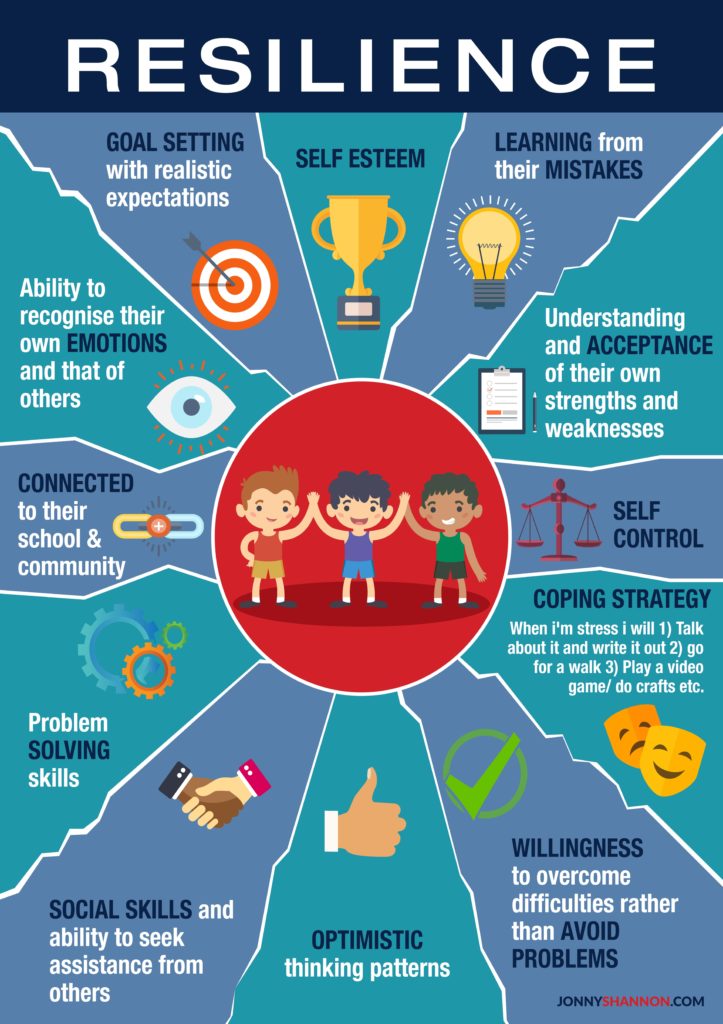Your child’s brain is plastic and can continue to grow and learn far longer than previously thought. No matter how much trauma and toxicity they experienced, as parents, you have the power to teach your kids how to build resilience. Remember that your love and connection to them is their shelter and foundation. Additionally, you can teach them concrete skills and strategies to help them thrive in their life’s journey: to become more resilient!

Let Them Fail
Children must experience, move through, and sit with healthy stress; to get out of their comfort zones and become resilient. They must experience failure. With your guidance, they will learn to problem solve, try new things, tolerate difficult and scary feelings, and feel competent in their ability to manage hard things. But how do you teach these things? First, do not hover and solve their problems for them. Allow them to fail. Second, help them through the problem solving process by modeling and guiding. Teach your children to label their feelings. Sit with them when they feel the difficult emotions of frustration, fear, worry, and anger. Validate their feelings. Explain that these feelings pass. Refer back to the resources section of this newsletter, for more specific tools.
Self-Regulation
When your children are upset, mad, and/or sad, teach them how to move through these feelings so they eventually can do this independently. Part of raising children is allowing them to find success in their own abilities which in turn builds confidence. Help them to discover what “triggers” them. Teach techniques like controlled breathing, taking a break, and going outside to manage their outbursts and negative thoughts. Model self-regulation: talk about your own soothing strategies so they see what you do to calm down when you get unregulated. Learning self-regulation is crucial in developing resilience.
Self-Care
Resilient people value self-care. Structure your family’s life with built-in self-care routines. Eat regular and healthy meals, exercise together, set sleep as a priority, go outside every day and enjoy nature, reduce over-scheduling, and find your family’s unique expression of self-care. Modeling is key. Talk out loud about how you take care of yourself as a parent so your children learn by example.
Service To Others
Research shows that helping others encourages compassion and confidence. The act of helping other people even teaches children how to be kind to themselves. So get involved in your community, church, or school. Even if it is a small act. Involve your children. Bake cookies for teachers. Send care-packages to the military. Volunteer at a Soup Kitchen. Donate gently used items to a homeless shelter. Kindness begets kindness. Believe it or not, acts of service build resiliency!





